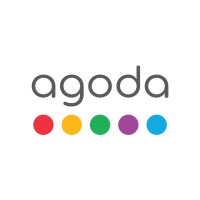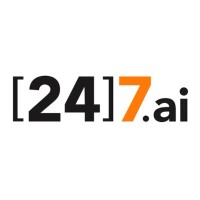Company Details
agoda
10,430
817,588
5112
careersatagoda.com
0
AGO_2316008
In-progress


Agoda Company CyberSecurity Posture
careersatagoda.comAt Agoda, we bridge the world through travel. We aim to make it easy and rewarding for more travelers to explore and experience the amazing world we live in. We do so by enabling more people to see the world for less – with our best-value deals across our 6,000,000+ hotels and holiday properties, 130,000+ flight routes, 360,000+ activities, and more. Agoda was founded in 2005 in Thailand by two lifelong friends with a shared passion for travel. Today, Agoda is part of Booking Holdings [BKNG], and we have more than 7,000 employees from 90 nationalities in offices across Asia Pacific, the Middle East, Europe, and the Americas. In every department – from engineering to customer support – you’ll find that data and technology are at the heart of our culture. There’s never a boring day at Agoda as we aim to make travel hassle-free for everyone. If you’re ready to begin your best journey with us and help us build travel for the world, join us. For properties seeking partnership with Agoda, visit https://connect.agoda.com
Company Details
agoda
10,430
817,588
5112
careersatagoda.com
0
AGO_2316008
In-progress
Between 750 and 799

 Agoda Global Score (TPRM)
Agoda Global Score (TPRM)XXXX

Description: The rise of clandestine 'travel agencies' on darknet forums has led to significant financial losses for travel and hospitality industries. These agencies sell fraudulently booked flights, hotels, and other services at discounted rates, starting with credential theft and ending with fraudulent bookings. Airlines lose seat inventory, hotels absorb charge-backs, and travelers face drained reward balances. Trustwave reported one agency processed over 2,000 bookings in Q1 2025, netting $1.4 million in illicit revenue.
Description: The ClickFix phishing campaign targeted Booking.com and its affiliated hotels by exploiting compromised accounts to distribute PureRAT malware via phishing emails and WhatsApp messages. Attackers purchased stolen Booking.com administrator credentials from dark web forums (e.g., LolzTeam) to craft convincing scams. Victims both hotels and guests were lured into fake Booking/Expedia login pages, where their login credentials and payment card data were harvested. The malware (PureRAT) enabled remote access, keystroke logging, and surveillance via webcam/microphone, allowing attackers to map hotel customer databases for further fraud. Fraudulent wire transactions were also executed using stolen data. The campaign, active since at least April 2025, leveraged real reservation details to enhance credibility, amplifying financial and reputational damage. While the exact scale of compromise remains undisclosed, the attack disrupted trust in Booking.com’s platform, exposed sensitive customer financial data, and enabled downstream fraud against hotels and guests.
Description: A large-scale phishing campaign orchestrated by Russian threat actors has targeted Booking.com since February, involving the registration of over 4,300 fraudulent domains mimicking legitimate booking and rental platforms like Expedia and Agoda. The attack specifically aimed to deceive hotel guests into divulging their payment details, including credit card information, bank account credentials, and personal identification data. By impersonating trusted booking services, the threat actors exploited user trust to harvest sensitive financial information, leading to potential fraudulent transactions, identity theft, and financial losses for affected customers. The scale of the operation suggests a systematic effort to compromise a high volume of users, leveraging social engineering tactics to bypass traditional security measures. While the exact number of victims remains undisclosed, the prolonged duration of the campaign (since February) indicates a sustained and evolving threat, with potential long-term reputational damage to Booking.com due to eroded customer confidence in its platform’s security.
Description: Booking.com Security Breach Exposes Hundreds of Travelers to Fraud A significant security breach at Booking.com has resulted in hundreds of Dutch travelers falling victim to fraud, with losses exceeding €65,000 in early 2026 alone. Hackers compromised hotel accounts on the platform, sending convincing fake messages to guests via the Booking.com app, WhatsApp, and email, demanding payments for alleged missing deposits. The attackers gained access to booking details, including guest contact information, by exploiting weak security practices. Ethical hacker Sijmen Ruwhof noted that criminals use AI tools to replicate hotel communications with near-perfect accuracy, making the scams difficult to detect. Compromised accounts often stem from reused passwords from data leaks or phishing attacks targeting hotels with malware-laden attachments. The fraud has surged globally, with reported cases in the UK, France, and Singapore, alongside the Netherlands. While Booking.com claims its security measures have improved citing a decline in internal victim counts public reporting has increased, with 200 Dutch victims in 2025 compared to 89 in 2024. The company acknowledged the issue has persisted since 2023, affecting multiple major platforms. Booking.com advises travelers to verify payment requests directly with hotels and treat unsolicited links with suspicion, though it offers assistance in recovering lost funds when possible. The breach highlights ongoing vulnerabilities in third-party account security and the growing sophistication of AI-driven fraud.


No incidents recorded for Agoda in 2026.
No incidents recorded for Agoda in 2026.
No incidents recorded for Agoda in 2026.
Agoda cyber incidents detection timeline including parent company and subsidiaries

At Agoda, we bridge the world through travel. We aim to make it easy and rewarding for more travelers to explore and experience the amazing world we live in. We do so by enabling more people to see the world for less – with our best-value deals across our 6,000,000+ hotels and holiday properties, 130,000+ flight routes, 360,000+ activities, and more. Agoda was founded in 2005 in Thailand by two lifelong friends with a shared passion for travel. Today, Agoda is part of Booking Holdings [BKNG], and we have more than 7,000 employees from 90 nationalities in offices across Asia Pacific, the Middle East, Europe, and the Americas. In every department – from engineering to customer support – you’ll find that data and technology are at the heart of our culture. There’s never a boring day at Agoda as we aim to make travel hassle-free for everyone. If you’re ready to begin your best journey with us and help us build travel for the world, join us. For properties seeking partnership with Agoda, visit https://connect.agoda.com


Airbnb was born in 2007 when two hosts welcomed three guests to their San Francisco home, and has since grown to over 5 million hosts who have welcomed over 2 billion guest arrivals in almost every country across the globe. Every day, hosts offer unique stays, experiences and services that make it p

Just Eat Takeaway.com is a leading global online delivery marketplace, connecting consumers and restaurants through our platform in 17 countries. Like a dinner table, working at JET brings our office employees and couriers together. From coding to customer service to couriers, JET is a
GoTo is the largest technology group in Indonesia, combining on-demand and financial services through the Gojek and GoTo Financial brands. It is the first platform in Southeast Asia to host these two essential use cases in one ecosystem, capturing a majority of Indonesian consumer household expendit

Red Hat is the world’s leading provider of enterprise open source solutions, using a community-powered approach to deliver high-performing Linux, hybrid cloud, edge, and Kubernetes technologies. We hire creative, passionate people who are ready to contribute their ideas, help solve complex problems
Wolters Kluwer (EURONEXT: WKL) is a global leader in information, software solutions, and services for professionals in healthcare; tax and accounting; financial and corporate compliance; legal and regulatory; corporate performance and ESG. We help our customers make critical decisions every day by

We're championing possibilities for all by making money fast, easy, and more enjoyable. Our hope is to unlock opportunities for people in their everyday lives and empower the millions of people and businesses around the world who trust, rely, and use PayPal every day. For support, visit the PayPal

JD.com, also known as JINGDONG, is a leading e-commerce company transferring to be a technology and service enterprise with supply chain at its core. JD.com’s business has expanded across retail, technology, logistics, health, property development, industrials, and international business. Ranking 44

[24]7.ai™ customer engagement solutions use conversational artificial intelligence to understand customer intent, enabling companies to create personalized, predictive, and effortless customer experiences across all channels; attract and retain customers; boost agent productivity and satisfaction; a
Rakuten Group, Inc. (TSE: 4755) is a global technology leader in services that empower individuals, communities, businesses and society. Founded in Tokyo in 1997 as an online marketplace, Rakuten has expanded to offer services in e-commerce, fintech, digital content and communications to 2 billion m
.png)
Agoda's global travel inventory now available through Global Redemption Suite, enabling banking to deliver loyalty with instant,...
A Russian-speaking threat behind an ongoing, mass phishing campaign has registered more than 4,300 domain names since the start of the year.
Cybersecurity researchers have called attention to a massive phishing campaign targeting the hospitality industry that lures hotel managers...
Cybersecurity researchers have uncovered a large-scale phishing campaign targeting hotel systems across the globe, in which cybercriminals...
JCB Co., Ltd. successfully hosted the 18th JCB World Conference on November 5 and 6, 2025, at the INSPIRE Entertainment Resort in Incheon,...
Agoda's latest data shows that food is fast becoming the main course of travel in Asia, with culinary activities ranking among the top five...
The travel sector has experienced a major technological transformation in recent years, making it more accessible, convenient,...
Thailand's top 10 best-paid tech jobs in 2024 see Software Engineers at Grab earning ฿60,000-฿120,000 monthly, Data Scientists at Agoda and...
Discover the top 10 tech internships available in Thailand. Get insights on programs, skills learned, and how to apply. Ideal for beginners.

Explore insights on cybersecurity incidents, risk posture, and Rankiteo's assessments.
The official website of Agoda is http://careersatagoda.com/.
According to Rankiteo, Agoda’s AI-generated cybersecurity score is 789, reflecting their Fair security posture.
According to Rankiteo, Agoda currently holds 0 security badges, indicating that no recognized compliance certifications are currently verified for the organization.
According to Rankiteo, Agoda has not been affected by any supply chain cyber incidents, and no incident IDs are currently listed for the organization.
According to Rankiteo, Agoda is not certified under SOC 2 Type 1.
According to Rankiteo, Agoda does not hold a SOC 2 Type 2 certification.
According to Rankiteo, Agoda is not listed as GDPR compliant.
According to Rankiteo, Agoda does not currently maintain PCI DSS compliance.
According to Rankiteo, Agoda is not compliant with HIPAA regulations.
According to Rankiteo,Agoda is not certified under ISO 27001, indicating the absence of a formally recognized information security management framework.
Agoda operates primarily in the Software Development industry.
Agoda employs approximately 10,430 people worldwide.
Agoda presently has no subsidiaries across any sectors.
Agoda’s official LinkedIn profile has approximately 817,588 followers.
Agoda is classified under the NAICS code 5112, which corresponds to Software Publishers.
No, Agoda does not have a profile on Crunchbase.
Yes, Agoda maintains an official LinkedIn profile, which is actively utilized for branding and talent engagement, which can be accessed here: https://www.linkedin.com/company/agoda.
As of January 21, 2026, Rankiteo reports that Agoda has experienced 4 cybersecurity incidents.
Agoda has an estimated 28,123 peer or competitor companies worldwide.
Incident Types: The types of cybersecurity incidents that have occurred include Cyber Attack and Breach.
Total Financial Loss: The total financial loss from these incidents is estimated to be $65 thousand.
Detection and Response: The company detects and responds to cybersecurity incidents through an containment measures with geo-fenced mfa on loyalty portals, containment measures with velocity limits tied to device-id, containment measures with dark-web telemetry that flags brand mentions, and third party assistance with sekoia (cybersecurity research), and communication strategy with advises travelers to verify payment requests directly with hotels and treat unsolicited links with suspicion, and enhanced monitoring with improved security measures (claimed by booking.com)..
Title: Dark Web Travel Agency Fraud
Description: The rise of clandestine travel agencies on darknet forums has led to a full-fledged service economy that sells half-priced flights, five-star hotels, and even yacht charters using stolen credentials and fraudulent bookings.
Type: Fraud
Attack Vector: Mass-phishingInfostealer trojans
Vulnerability Exploited: Credential theft, Stolen payment tokens
Threat Actor: Dark web travel agencies
Motivation: Financial gain
Title: ClickFix phishing campaign targets hotels and guests with PureRAT malware
Description: Attackers exploit compromised Booking.com accounts and sell stolen credentials on dark web forums. Guests are tricked into fake Booking/Expedia sites, losing login and payment card data. Hotels and their guests are targeted by a sophisticated ClickFix campaign delivering PureRAT malware, stealing credentials, and enabling fraudulent wire transactions. The campaign involves phishing emails, fake reCAPTCHA challenges, and personalized WhatsApp messages with real reservation details to deceive victims. PureRAT grants remote access, keystroke logging, and data exfiltration capabilities. The campaign has been active since at least April 2025 and remains operational as of early October 2025.
Date Publicly Disclosed: 2025-10-01
Type: phishing
Attack Vector: compromised email accountsphishing linksfake reCAPTCHA challengemalware download (PureRAT)personalized WhatsApp messagesfake Booking/Expedia websites
Vulnerability Exploited: human trust (social engineering)compromised Booking.com accountslack of multi-factor authentication (MFA)
Motivation: financial gaindata theftfraudulent transactions
Title: Phishing Campaign Targeting Booking and Rental Services by Russian Threat Actors
Description: More than 4,300 domains have been registered by Russian threat actors to impersonate widely known booking and rental services, such as Booking.com, Expedia, and Agoda, as part of a phishing campaign that has sought to pilfer hotel guests' payment details since February 2025.
Date Publicly Disclosed: 2025-11-14
Type: phishing
Attack Vector: malicious domain registrationsocial engineeringphishing emails/websites
Threat Actor: Russian threat actors
Motivation: financial gaintheft of payment details
Title: Booking.com Security Breach Exposes Hundreds of Travelers to Fraud
Description: A significant security breach at Booking.com resulted in hundreds of Dutch travelers falling victim to fraud, with losses exceeding €65,000 in early 2026. Hackers compromised hotel accounts on the platform, sending convincing fake messages to guests via the Booking.com app, WhatsApp, and email, demanding payments for alleged missing deposits. The attackers exploited weak security practices to gain access to booking details, including guest contact information.
Type: Fraud/Scam
Attack Vector: PhishingCompromised AccountsMalware
Vulnerability Exploited: Reused passwords from data leaksWeak security practices
Motivation: Financial gain
Common Attack Types: The most common types of attacks the company has faced is Cyber Attack.
Identification of Attack Vectors: The company identifies the attack vectors used in incidents through Mass-phishing, Infostealer trojans, compromised Booking.com accountspurchased administrator contact info from dark web, phishing domains impersonating booking services and Reused passwordsPhishing attacks targeting hotels.

Financial Loss: Airlines lose seat inventory, hotels absorb charge-backs, travelers face drained reward balances
Systems Affected: Booking systems, payment gateways
Payment Information Risk: High

Data Compromised: Login credentials, Payment card data, Reservation details
Brand Reputation Impact: potential loss of trust in Booking.com and affected hotels
Identity Theft Risk: ['high (due to stolen credentials and payment data)']
Payment Information Risk: ['high (credit card data stolen)']

Data Compromised: Payment details
Brand Reputation Impact: potential reputational damage to Booking.com, Expedia, Agoda, and other impersonated brands
Identity Theft Risk: ['high (due to stolen payment details)']
Payment Information Risk: ['high (primary target of the campaign)']

Financial Loss: €65,000+ (early 2026)
Data Compromised: Guest contact information, Booking details
Systems Affected: Booking.com platformHotel accounts
Brand Reputation Impact: Significant
Identity Theft Risk: High
Payment Information Risk: High
Average Financial Loss: The average financial loss per incident is $16.25 thousand.
Commonly Compromised Data Types: The types of data most commonly compromised in incidents are Loyalty credentials, Payment tokens, Login Credentials, Payment Card Information, Reservation Details, , Payment Details, , Guest Contact Information, Booking Details and .

Entity Type: Airlines, Hotels, Travel Agencies
Industry: Travel and Hospitality

Entity Name: Booking.com
Entity Type: Online Travel Agency (OTA)
Industry: Hospitality/Travel
Location: Global

Entity Name: Expedia
Entity Type: Online Travel Agency (OTA)
Industry: Hospitality/Travel
Location: Global

Entity Name: Unspecified Hotels
Entity Type: Hospitality Business
Industry: Hospitality
Location: Global

Entity Name: Hotel Guests
Entity Type: Individual Consumers
Location: Global

Entity Name: Booking.com
Entity Type: company
Industry: travel/booking services
Location: global

Entity Name: Expedia
Entity Type: company
Industry: travel/booking services
Location: global

Entity Name: Agoda
Entity Type: company
Industry: travel/booking services
Location: global

Entity Name: Hotel guests (unspecified hotels)
Entity Type: individuals
Location: global

Entity Name: Booking.com
Entity Type: Company
Industry: Travel/Hospitality
Location: Global
Customers Affected: Hundreds (Dutch travelers primarily, with cases in UK, France, and Singapore)

Containment Measures: Geo-fenced MFA on loyalty portalsVelocity limits tied to device-IDDark-web telemetry that flags brand mentions

Third Party Assistance: Sekoia (Cybersecurity Research).

Communication Strategy: Advises travelers to verify payment requests directly with hotels and treat unsolicited links with suspicion
Enhanced Monitoring: Improved security measures (claimed by Booking.com)
Third-Party Assistance: The company involves third-party assistance in incident response through Sekoia (cybersecurity research), .

Type of Data Compromised: Loyalty credentials, Payment tokens
Sensitivity of Data: High

Type of Data Compromised: Login credentials, Payment card information, Reservation details
Sensitivity of Data: high (financial and personal data)
Data Exfiltration: credentials sold on dark web forums (e.g., LolzTeam)
Personally Identifiable Information: potentially included (names, contact details, payment info)

Type of Data Compromised: Payment details
Sensitivity of Data: high
Data Exfiltration: likely (payment details stolen)
Personally Identifiable Information: potentially (linked to payment details)

Type of Data Compromised: Guest contact information, Booking details
Sensitivity of Data: High (personally identifiable information)
Personally Identifiable Information: Yes
Handling of PII Incidents: The company handles incidents involving personally identifiable information (PII) through by geo-fenced mfa on loyalty portals, velocity limits tied to device-id, dark-web telemetry that flags brand mentions and .

Lessons Learned: Layered countermeasures are effective at disrupting high-speed fraud loops

Lessons Learned: Highlights ongoing vulnerabilities in third-party account security and the growing sophistication of AI-driven fraud.

Recommendations: Implement geo-fenced MFA on loyalty portals, velocity limits tied to device-ID, and dark-web telemetry that flags brand mentions

Recommendations: Verify payment requests directly with hotels, Treat unsolicited links with suspicion, Avoid reusing passwordsVerify payment requests directly with hotels, Treat unsolicited links with suspicion, Avoid reusing passwordsVerify payment requests directly with hotels, Treat unsolicited links with suspicion, Avoid reusing passwords
Key Lessons Learned: The key lessons learned from past incidents are Layered countermeasures are effective at disrupting high-speed fraud loopsHighlights ongoing vulnerabilities in third-party account security and the growing sophistication of AI-driven fraud.
Implemented Recommendations: The company has implemented the following recommendations to improve cybersecurity: Implement geo-fenced MFA on loyalty portals, velocity limits tied to device-ID, and dark-web telemetry that flags brand mentions, Verify payment requests directly with hotels, Treat unsolicited links with suspicion and Avoid reusing passwords.

Source: Trustwave

Source: TechRadar Pro

Source: Sekoia Cybersecurity Research

Source: Ethical hacker Sijmen Ruwhof
Additional Resources: Stakeholders can find additional resources on cybersecurity best practices at and Source: Trustwave, and Source: TechRadar Pro, and Source: Sekoia Cybersecurity Research, and Source: The Hacker NewsDate Accessed: 2025-11-14, and Source: Ethical hacker Sijmen Ruwhof.

Investigation Status: Ongoing (as of October 2025)

Investigation Status: ongoing (as of disclosure date)
Communication of Investigation Status: The company communicates the status of incident investigations to stakeholders through Advises travelers to verify payment requests directly with hotels and treat unsolicited links with suspicion.

Customer Advisories: Verify payment requests directly with hotels and treat unsolicited links with suspicion
Advisories Provided: The company provides the following advisories to stakeholders and customers following an incident: was Verify payment requests directly with hotels and treat unsolicited links with suspicion.

Entry Point: Mass-phishing, Infostealer trojans
High Value Targets: Loyalty credentials, Payment tokens
Data Sold on Dark Web: Loyalty credentials, Payment tokens

Entry Point: Compromised Booking.Com Accounts, Purchased Administrator Contact Info From Dark Web,
Backdoors Established: ['PureRAT malware']
High Value Targets: Hotel Administrators, Booking.Com Account Holders, Hotel Guests,
Data Sold on Dark Web: Hotel Administrators, Booking.Com Account Holders, Hotel Guests,

Entry Point: Phishing Domains Impersonating Booking Services,
Reconnaissance Period: ['since at least February 2025']
High Value Targets: Hotel Guests' Payment Details,
Data Sold on Dark Web: Hotel Guests' Payment Details,

Entry Point: Reused Passwords, Phishing Attacks Targeting Hotels,
High Value Targets: Hotel accounts
Data Sold on Dark Web: Hotel accounts

Root Causes: Credential theft, Stolen payment tokens
Corrective Actions: Implement layered countermeasures

Root Causes: Successful Phishing Attacks, Lack Of Mfa On Booking.Com Accounts, Trust In Legitimate-Looking Communications,

Root Causes: Weak Security Practices, Reused Passwords From Data Leaks, Phishing Attacks,
Corrective Actions: Improved Security Measures (Claimed By Booking.Com),
Post-Incident Analysis Process: The company's process for conducting post-incident analysis is described as Sekoia (Cybersecurity Research), , Improved security measures (claimed by Booking.com).
Corrective Actions Taken: The company has taken the following corrective actions based on post-incident analysis: Implement layered countermeasures, Improved Security Measures (Claimed By Booking.Com), .
Last Attacking Group: The attacking group in the last incident were an Dark web travel agencies and Russian threat actors.
Most Recent Incident Publicly Disclosed: The most recent incident publicly disclosed was on 2025-11-14.
Most Significant Data Compromised: The most significant data compromised in an incident were login credentials, payment card data, reservation details, , payment details, , Guest contact information, Booking details and .
Most Significant System Affected: The most significant system affected in an incident was Booking.com platformHotel accounts.
Third-Party Assistance in Most Recent Incident: The third-party assistance involved in the most recent incident was sekoia (cybersecurity research), .
Containment Measures in Most Recent Incident: The containment measures taken in the most recent incident was Geo-fenced MFA on loyalty portalsVelocity limits tied to device-IDDark-web telemetry that flags brand mentions.
Most Sensitive Data Compromised: The most sensitive data compromised in a breach were Guest contact information, reservation details, Booking details, payment details, payment card data and login credentials.
Most Significant Lesson Learned: The most significant lesson learned from past incidents was Layered countermeasures are effective at disrupting high-speed fraud loops, Highlights ongoing vulnerabilities in third-party account security and the growing sophistication of AI-driven fraud.
Most Significant Recommendation Implemented: The most significant recommendation implemented to improve cybersecurity was Implement geo-fenced MFA on loyalty portals, velocity limits tied to device-ID, and dark-web telemetry that flags brand mentions, Verify payment requests directly with hotels, Treat unsolicited links with suspicion and Avoid reusing passwords.
Most Recent Source: The most recent source of information about an incident are TechRadar Pro, The Hacker News, Sekoia Cybersecurity Research, Trustwave and Ethical hacker Sijmen Ruwhof.
Current Status of Most Recent Investigation: The current status of the most recent investigation is Ongoing (as of October 2025).
Most Recent Customer Advisory: The most recent customer advisory issued was an Verify payment requests directly with hotels and treat unsolicited links with suspicion.
Most Recent Entry Point: The most recent entry point used by an initial access broker were an Mass-phishing and Infostealer trojans.
Most Recent Reconnaissance Period: The most recent reconnaissance period for an incident was since at least February 2025.
Most Significant Root Cause: The most significant root cause identified in post-incident analysis was Credential theft, Stolen payment tokens, successful phishing attackslack of MFA on Booking.com accountstrust in legitimate-looking communications, Weak security practicesReused passwords from data leaksPhishing attacks.
Most Significant Corrective Action: The most significant corrective action taken based on post-incident analysis was Implement layered countermeasures, Improved security measures (claimed by Booking.com).
.png)
SummaryA command injection vulnerability (CWE-78) has been found to exist in the `wrangler pages deploy` command. The issue occurs because the `--commit-hash` parameter is passed directly to a shell command without proper validation or sanitization, allowing an attacker with control of `--commit-hash` to execute arbitrary commands on the system running Wrangler. Root causeThe commitHash variable, derived from user input via the --commit-hash CLI argument, is interpolated directly into a shell command using template literals (e.g., execSync(`git show -s --format=%B ${commitHash}`)). Shell metacharacters are interpreted by the shell, enabling command execution. ImpactThis vulnerability is generally hard to exploit, as it requires --commit-hash to be attacker controlled. The vulnerability primarily affects CI/CD environments where `wrangler pages deploy` is used in automated pipelines and the --commit-hash parameter is populated from external, potentially untrusted sources. An attacker could exploit this to: * Run any shell command. * Exfiltrate environment variables. * Compromise the CI runner to install backdoors or modify build artifacts. Credits Disclosed responsibly by kny4hacker. Mitigation * Wrangler v4 users are requested to upgrade to Wrangler v4.59.1 or higher. * Wrangler v3 users are requested to upgrade to Wrangler v3.114.17 or higher. * Users on Wrangler v2 (EOL) should upgrade to a supported major version.
Vulnerability in the Oracle VM VirtualBox product of Oracle Virtualization (component: Core). Supported versions that are affected are 7.1.14 and 7.2.4. Easily exploitable vulnerability allows high privileged attacker with logon to the infrastructure where Oracle VM VirtualBox executes to compromise Oracle VM VirtualBox. While the vulnerability is in Oracle VM VirtualBox, attacks may significantly impact additional products (scope change). Successful attacks of this vulnerability can result in takeover of Oracle VM VirtualBox. CVSS 3.1 Base Score 8.2 (Confidentiality, Integrity and Availability impacts). CVSS Vector: (CVSS:3.1/AV:L/AC:L/PR:H/UI:N/S:C/C:H/I:H/A:H).
Vulnerability in the Oracle VM VirtualBox product of Oracle Virtualization (component: Core). Supported versions that are affected are 7.1.14 and 7.2.4. Easily exploitable vulnerability allows high privileged attacker with logon to the infrastructure where Oracle VM VirtualBox executes to compromise Oracle VM VirtualBox. While the vulnerability is in Oracle VM VirtualBox, attacks may significantly impact additional products (scope change). Successful attacks of this vulnerability can result in unauthorized creation, deletion or modification access to critical data or all Oracle VM VirtualBox accessible data as well as unauthorized access to critical data or complete access to all Oracle VM VirtualBox accessible data and unauthorized ability to cause a partial denial of service (partial DOS) of Oracle VM VirtualBox. CVSS 3.1 Base Score 8.1 (Confidentiality, Integrity and Availability impacts). CVSS Vector: (CVSS:3.1/AV:L/AC:L/PR:H/UI:N/S:C/C:H/I:H/A:L).
Vulnerability in the Oracle VM VirtualBox product of Oracle Virtualization (component: Core). Supported versions that are affected are 7.1.14 and 7.2.4. Easily exploitable vulnerability allows high privileged attacker with logon to the infrastructure where Oracle VM VirtualBox executes to compromise Oracle VM VirtualBox. While the vulnerability is in Oracle VM VirtualBox, attacks may significantly impact additional products (scope change). Successful attacks of this vulnerability can result in takeover of Oracle VM VirtualBox. CVSS 3.1 Base Score 8.2 (Confidentiality, Integrity and Availability impacts). CVSS Vector: (CVSS:3.1/AV:L/AC:L/PR:H/UI:N/S:C/C:H/I:H/A:H).
Vulnerability in the Oracle VM VirtualBox product of Oracle Virtualization (component: Core). Supported versions that are affected are 7.1.14 and 7.2.4. Easily exploitable vulnerability allows high privileged attacker with logon to the infrastructure where Oracle VM VirtualBox executes to compromise Oracle VM VirtualBox. While the vulnerability is in Oracle VM VirtualBox, attacks may significantly impact additional products (scope change). Successful attacks of this vulnerability can result in takeover of Oracle VM VirtualBox. CVSS 3.1 Base Score 8.2 (Confidentiality, Integrity and Availability impacts). CVSS Vector: (CVSS:3.1/AV:L/AC:L/PR:H/UI:N/S:C/C:H/I:H/A:H).

Get company history
















Every week, Rankiteo analyzes billions of signals to give organizations a sharper, faster view of emerging risks. With deeper, more actionable intelligence at their fingertips, security teams can outpace threat actors, respond instantly to Zero-Day attacks, and dramatically shrink their risk exposure window.
Identify exposed access points, detect misconfigured SSL certificates, and uncover vulnerabilities across the network infrastructure.
Gain visibility into the software components used within an organization to detect vulnerabilities, manage risk, and ensure supply chain security.
Monitor and manage all IT assets and their configurations to ensure accurate, real-time visibility across the company's technology environment.
Leverage real-time insights on active threats, malware campaigns, and emerging vulnerabilities to proactively defend against evolving cyberattacks.




